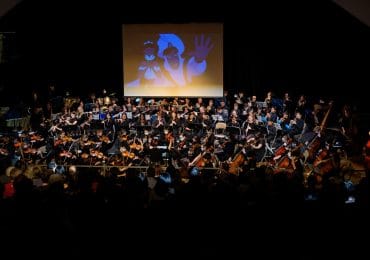LAMDA
LAMDA TUITION��
In addition to the Drama curriculum and cocurricular activities, LAMDA lessons are offered by Visiting Lamda Teachers (VLTs) who are self employed professionals. LAMDA lessons require commitment, dedication and regular practice outside of lessons in order to be ready for exams.������
WHAT IS LAMDA?��
The London Academy of Music and Dramatic Art (LAMDA) examinations have been a consistently successful enrichment activity at ɫ������ for many years. LAMDA is the UK’s largest Speech and Drama board and a nationally recognised qualification in communication and performance, which is why we feel they are an important element of a full education. ��
LAMDA examinations are designed to improve standards in communication through spoken word and to support the creative, intellectual and social development of the individual as a whole. LAMDA examinations are about achievement and provide an opportunity to develop important life-skills, such as self-confidence and the ability to communicate clearly.
Please do take time to have a look at LAMDA’s website for more information:�� ��
WHAT WE OFFER��
Preparation for examinations is offered for Grades 1 – 8 in all performance and communication options and no prior experience is necessary; pupils often take a range of different exams over the course of their LAMDA tuition at Caterham. Their LAMDA teacher will decide which grade and exam is suitable for a pupil and will build on any previous examinations taken or relevant acting experience. UCAS points are attached to Level 3 qualifications – Grades 6, 7, 8 which are awarded Bronze, Silver and Gold medals respectively. ��
There will be approximately 30 lessons over the year, subject to term length. Individual, paired and small group (3) lessons are offered. Pupils in paired or group lessons will not necessarily take an exam together and teaching time is shared between the pupils.��
A summary of the exams offered and skills practised is below but more information on each exam discipline is on the LAMDA website:
Speaking Verse & Prose��
- Designed to develop the skills necessary for effective communication of novels and poetry. Develops a strong speaking voice and memory skills. Designed for individual candidates.��
Acting��
- Developing acting skills required for communicating character and context. Developing a strong, expressive speaking voice and good memory skills by learning and performing monologues and duologues. Designed for solo, duologue or group performances.��
Devising Drama ��
- Developing creativity by exploring ideas and themes through drama, and realising them through devised dramatic performances. Designed for solo, duo or group performances.��
�Ѿ������Բ� ��
- Gaining an understanding of non-verbal communication by exploring physicality and movement, and putting it into a dramatic performance. Designed for solo or duo performances.��
Public Speaking��
- Developing essential skills for constructing and delivering talks, presentations and speeches. Designed for individual candidates. ��
Reading for Performance��
- Developing a recital around a theme of the pupil’s choice and developing an introduction, links and a conclusion to tie it all together. Prose and verse selections do not need to be learnt. Designed for individual candidates��
S��������� ��
- A new qualification in three levels designed to allow pupils to focus purely on some of the best Shakespearian speeches and study the language used. Designed for individuals at Level One and individuals and duologues at Levels Two and Three.��
Musical Theatre��
- Depending on the grade, pupils perform contrasting musical pieces of their choice, as well as a short devised introductions in character and a monologue, with the emphasis on performing through song. Designed for solo, duos or groups.��
HOW DOES IT WORK?��
Pupils are withdrawn from their normal timetabled class on a rotational basis, missing the same lesson no more than twice each half term. They will not be taken out of Games lessons. For Sixth formers or any students already missing a lesson for a regular commitment such as music we will endeavour to schedule their lessons in free periods, lunchtimes or before/ after school where there is availability but this is not always possible. Whilst every effort is made to accommodate grouping or paired preferences and requests, priorities within the curriculum as well as applications will guide the timetable and sometimes individual rather than paired or group lessons will be offered. Naturally, lunchtime slots are extremely limited, and it may be necessary to be placed on a waiting list for such a slot if the pupil cannot be rotated.��
WHEN AND WHERE ARE EXAMS?��
Examinations are held within school at least twice a year, usually in the Spring and Summer terms and often in November as well. Pupils will be advised by their teacher about the best time to enter for an examination and we expect pupils to relay this information to their parents. Examination fees are in addition to timetabled lessons and will correspond to the grade being taken and will be placed on the end of term bill by the school once a pupil has been entered. These are listed in full on the LAMDA website. Once a pupil has been entered for an examination (6 weeks in advance of the date), LAMDA will charge the examination fee and any withdrawals will not be entitled to a refund. If a pupil is ill on the day of the examination, LAMDA will, at their discretion, provide a Transfer Credit Voucher for half the amount of the exam to be used to retake the exam.��
COST��
Cost of tuition 2023/24��
|
Solo – 35 lesson�� |
£30.00�� |
|
Paired – 35 minute lesson�� |
£15.00�� |
|
Group – 3 students – 35 minute lesson�� |
£10.00�� |
HOW TO APPLY��
Requesting Tuition ��
Please complete the application form (click here). ��
Mrs Yankova, the LAMDA CO-Ordinator, will allocate lessons amongst VLTs who will then contact parents directly to offer tuition and invoice them. Lessons will not commence until payment has been received. Parents can expect to be informed and billed for lessons before the start of each academic term and will be billed approximately as follows:��
Autumn Term: 12 lessons��
Spring Term: 10 lessons��
Summer Term: 8 lessons��
The number of lessons is at the teacher’s discretion and may be slightly less but will never be more than 30 lessons in the whole year. Where a request for lessons cannot be immediately accommodated, the pupil’s name will be added to a waiting list and they will be offered tuition at the earliest possible opportunity.��
Important information��
- Please be aware that your contact details will be shared with our VLTs who will be in contact with you directly to arrange lessons.��
- Reports are written annually. The LAMDA Co-Ordinator (Mrs Yankova) sees all reports written by the VLTs and your submission of this form confirms your agreement to this.��
- Pupils are generally withdrawn from their normal timetabled academic lessons on a rotational basis. Sixth Form pupils and pupils receiving tuition in music will be offered, subject to availability, fixed lesson slots (for Sixth Form, in free periods). These fixed lesson slots are limited and therefore cannot be offered to pupils unless they meet these criteria.��





